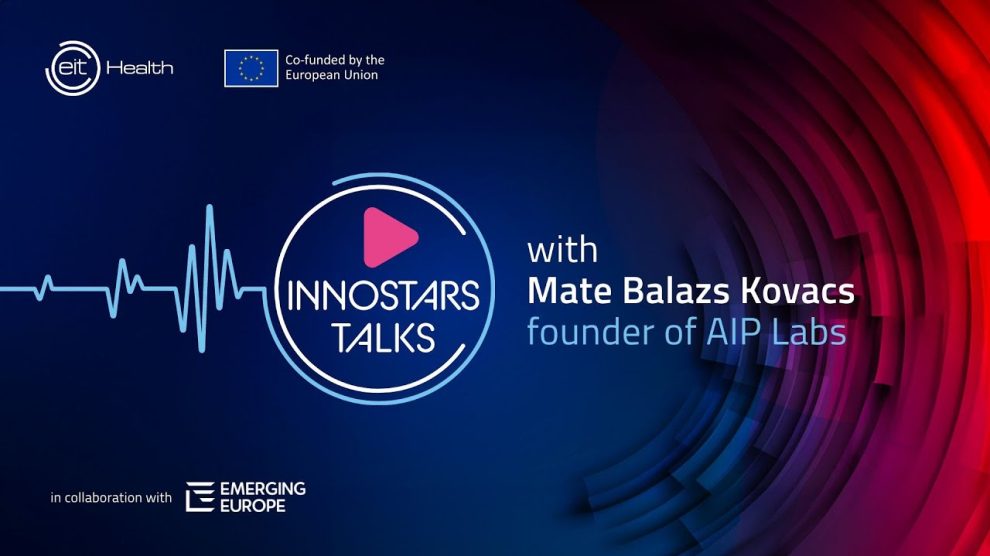Initial resistance from medical professionals towards AI has been overcome by working closely with doctors to develop technology they want to use.
“Doctors should be using AI not only for a more precise diagnosis but for a more precise diagnosis 35 times an hour. That’s the real secret,” Máté Balázs Kovács, co-founder and CEO of AIP Labs, tells me in the first episode of the InnoStars Talks series from EIT Health in partnership with Emerging Europe.
AIP Labs describes itself as an artificial intelligence pioneer building the world’s leading AI engines and infrastructure, including a proprietary Digital Hospital. It has built the first AI platform in the world to be integrated into the full social services for an entire country—Hungary—in collaboration with the most prestigious universities.
AIP is extracting the full potential of the Hungarian clinical workforce by optimising operational efficiency through integrating and consolidating its existing infrastructure with the world’s first Digital Hospital.
Here are my three takeaways from the discussion.
AI’s role in dermatological care
Dermatology is the third most sought after care type globally; roughly 10 per cent of the population has to see a dermatologist in person. That, according to Kovács, can take between three and six months.
“72 per cent of the patients that we receive in this digital hospital actually avoid having to incur an in-person visit, which is the basis of our philosophy to reduce the time spent on unnecessary visits, to make sure that we can prioritise those who really need care,” Kovács says.
Empowering doctors, not replacing them
A significant concern in the medical community is the fear of being replaced by AI. “We are not big believers in the fact that AI can replace doctors,” Kovács adds.
Instead, AIP Labs focuses on “supercharging doctors’ ability to attend to patients” by using AI to increase efficiency. By automating certain processes, doctors can treat more patients per hour, thus addressing the shortage of healthcare professionals.
Overcoming resistance to AI
The initial resistance from medical professionals towards AI technology has been overcome by working closely with doctors to develop technology they would be comfortable using.
“I spent the first two years just really working with doctors to build a product and the technology that they will be very happy to use,” Kovács adds.
This collaborative approach led to a successful integration of AI in their practice, with doctors eventually seeing the benefits and accepting the AI-generated differential diagnoses.
Listen to the full episode on Spotify below or Apple Podcasts.
Or watch it on YouTube.
Photo by Sasha Pleshco on Unsplash.
Unlike many news and information platforms, Emerging Europe is free to read, and always will be. There is no paywall here. We are independent, not affiliated with nor representing any political party or business organisation. We want the very best for emerging Europe, nothing more, nothing less. Your support will help us continue to spread the word about this amazing region.
You can contribute here. Thank you.



Add Comment